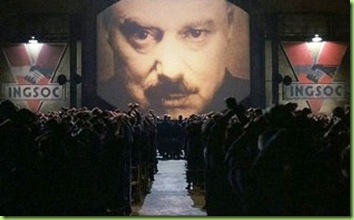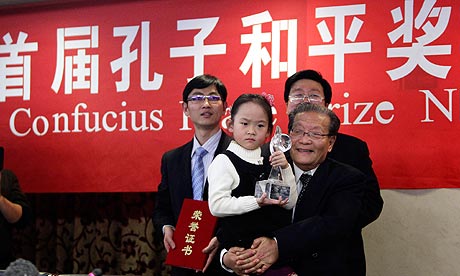HAVING been fortunate enough to travel to a significant number of incredible places in the world, there are many moments which have stayed with me until now, and will likely do so for the rest of my life.
 |
A trusty IXUS 50 Digital Camera -
All you need! |
Though most of the time these instances are too fleeting or personal to allow a camera to steal them, occasionally I have been able to trap a brief instant between my shutters.
I shall occasionally post a short selection of a few moments which - for one reason or another - I felt demanded to be caught.
I would greatly appreciate comments or suggestions on this one...
All pictures: JOE BRISCOE
_______________________________________________________________________________
_______________________________________________________________________________
India, 2009:
WHEN arriving at a place as famous as the one featured in this photograph, the temptation to shoot it from every possible angle grabs you, and you spend a good hour taking virtually the same picture again and again. After the initial urge to do this passes and you feel confident with your 'safety' images, then you begin to look around.
Suddenly the area ceases to only contain the world's most famous building, and as if by magic all the life around you appears. Families, workers, security guards, children playing, people looking lost - even lovers gazing at each other.
And before you know it, you're looking at an incredibly touching moment, a defining second in the life of a small child. Their first trip to the international symbol of their country.
A day which will be burned into their memory for the rest of their life.
 |
A family in India stares upon the Taj Mahal for the first time.
I could see the little girl would remember this day for the rest of her life.
All pictures: JOE BRISCOE |
And as the family of three stepped through the gates and were confronted with their first view of the world's most famous monument to love, I raised my camera and caught it forever. Though only I saw the face of the little girl as her eyes gradually settled on the landmark, hopefully from this picture you can imagine the sparkle in her shining little eyes too.
I am not ordinarily one for deliberately out of focus photographs, but in this case I very quickly decided that the building itself remained instantly recognisable when out of focus. I took a number of similar pictures both in and out of focus, but this one seems to retain the scale and dominance of the Taj Mahal the best.
_______________________________________________________________________________
Tibet, 2009:
HOW to photograph the repression of a people? When cautiously exploring Tibet, a place which feels every bit an occupied country, chances to speak to people freely are few and far between. Most will not say anything at all, and those that do are guarded and vague. Add to this the fact that one is accompanied, supposedly at all times, by a 'minder' appointed by the government. Although my colleage and I did managed to give said 'guide' the slip for a while, the massive police and military presence on every street makes one constantly think twice about doing anything undesireable.
And so, for the most part, I was reduced to shooting the things which our guide pointed to.
The video footage I gathered whilst in Tibet however remains a source of much amusement to me. Each time an armed guard or sniper hidden among the rooftops noticed I was filming him, his expression would change to a look of terror and shout at me while waving his hands frantically. I of course would slowly point the camera away, trying to make it seem like I had simply been panning past him all along.
 |
A Tibetan mother and daughter are fascinated by the first 'westerner' they've
ever seen. Behind them, the infamous Sera monastry - nestled
beneath the mountains which encircle Lhasa.
All pictures: JOE BRISCOE |
The above picture though, is a still I managed to take while attempting to get inside one of the buildings of the infamous and now dangerously symbolic Sera monastry - one of the 'great three'
Gelukpa university
monasteries of
Tibet, and particularly famous for nurturing rebellious monks.
As I looked around the exterior of the old Tibetan building and beyond to the mountains I caught sight of a mother and daughter, secretly watching me. As is often the case in Asia, a moment passed between us, I snapped the picture and we shared a smile.
Although the reasons for the devout buddhists attempting to enter the monastry couldn't have been more different to those of this old British atheist, for a second we were all just people trying to enter a very special and symbolic place.
 |
The sun, symbol of Tibet, streams down through the roof of Sera monastry,
illuminating the dust which has remained trapped in the gloom for an age..
All pictures: JOE BRISCOE |
Once inside, the monastry was otherworldy. When within the main hall, I was transfixed by the devotion of the monks and tried desperately to store every second of their heart-trembling chanting in my memory - thinking perhaps that I could store such raw energy and peaceful defiance deep inside for myself.
Soon however, my colleage and I evaded our minder and strayed out - poking our noses around the restricted areas of the monastry. Restricted by the Chinese government, that is.
One of the wonderous little places we stumbled upon is featured in the above photo. An absolutely incredible little room which, as I recall, produced all the food for the thousands of monks who could be staying at the monastry at one time. But the room was so much more than that. It was a snapshot of a different age - littered with ancient Tibetan artefacts and kept in a way that could only have been done in Tibet. The smell of butter lamps soaked out of every wall, and, like the most wonderful film set, the sun splashed down through the roof, making the centuries old dust dance and swim. The ancient, musty air itself alive with the memory of happier times and the experience of tragedy.
While a photo can never contain all that, this one at least puts the basic image into your mind.
_______________________________________________________________________________
Indonesia, 2010:
AS always when travelling, the people you meet are always the most interesting thing. But sometimes, simply watching people without talking to them, and observing their actions - trying to guess where they are from and what they are all about - is just as rewarding as speaking to them.
 |
A lone woman, accompanied by nobody, yet basking in the
intense rays of one of natures most spectacular shows.
All pictures: JOE BRISCOE |
As hundreds descended onto the beach at Bali to watch the world renowned sunset, I instead turned my attention to the many who, like me, were watching the spectacle by themselves.
Alone with their thoughts, living their own adventure and yet surrounded by so many strangers.
The sunset, needless to say, was awe-inspiring, but not half as beautiful as the incredible mixture of cultures and nationalities which joined together each night to share the same experience.
I snapped many pictures of all kinds of people over those nights, but the one I have included above is one of the better composed images. Although shooting sunsets is relatively easy, the lone woman I had been watching, seemingly in her own little world with something on her mind, stepped into the sun at precisely the right moment.
And I grabbed it.
_______________________________________________________________________________
China, 2007:
IN a country where gaudy nationalistic monuments and historical shrines to a long-dead culture exist on every street corner, it is something of a rarity to be impressed by them in China anymore. And yet the sheer scale and simple brilliance of the Xi'an city walls still manage to make me smile.
Imagine an entire modern city, surrounded by vast battlements which encircle the entirety of it. While outlying districts have sprung up on the other side of the wall, Xi'an can still be easily negotiated by simply knowing where you are in relation to the wall. There are only a few entrances and exists to the city, meaning that even today, the city could be defended in exactly the same way as a thousand years ago.
And while the walls have of course been rebuilt many times since then, they remain grand and imposing during the day.
But, as the Chinese have a bad habit of doing, by night they are illuminated by somewhat tacky, red (of course) lights. But for once, rather than turning away from them, I was momentarily taken by the resulting affect.
 |
The South gate to the city walls of ancient Xi'an.
Imperialistic, imposing and enchanting.
All pictures: JOE BRISCOE |
The picture above is a section of the South Gate, taken a few weeks before Chinese new year in early 2007. If nothing else, I was quite pleased with the way the colour turned out, especially considering the camera used and the fact that it was taken at night.
Who would have thought that Chinese imperialism could be so pretty...
_______________________________________________________________________


































